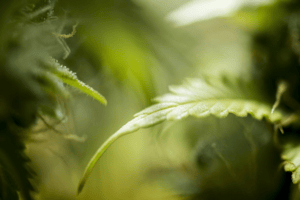Alberto Sainz is a behavorial scientist with a background in psychology and neurosciences and specialized in psychopharmacology of cannabis. Alberto is based in Barcelona, he is part of the Broughton...
International Women & Girls in Science Day
Women In Science
.png)
Feb 12, 2024 | Published by Broughton
Women In Science, Celebrations
Today we are celebrating International Women and Girls in Science Day.
Since 1957, researchers have been asking children to draw a scientist to better understand the stereotypes in the industry. Most children draw men.
However, gender stereotypes are starting to change.
At Broughton, over 40% of our Lab Scientist and Consultancy team are women, and we are passionate about supporting them to achieve their ambitions.
We asked three of our team working at Broughton, Laboratory Manager Kerry Child, Operations Services Manager Katie Harrison and Quality Assurance Officer Vicky Broomhead to share their experiences as women working in science.
Why did you become a scientist, and how has your career looked so far?
Kerry: I picked science subjects at A Level because I enjoyed them, but I wasn’t an exam person and wasn’t predicted to do well. After my A Levels, I decided to study Chemistry at university; I knew I didn’t want an office job, but I didn’t have any particular ambition to become a scientist. I initially went to work for the NHS before making the move to join Broughton as a Quality Control (QC) scientist. I’ve worked in numerous roles in the business since then, and I now lead a team of ten that works on both pharmaceutical and nicotine projects. For example, the team will perform trace analysis or extractables and leachables studies.
Katie: I excelled at science at school, and I decided to study Forensic Science at university with the ambition to work for the police. After the funding for the role was cut, I had to re-evaluate, and I was fortunate to find Broughton. I think finding the right company to work for is hugely important, working at Broughton has given me so many opportunities — I became a Team Leader after just a few years. Over time, I’ve picked up additional responsibilities for both people and products, and now I work as Operations Services Manager.
Vicky: My mum worked in the pharmaceutical sector, and I got a summer job in science. Since then, I’ve always known I wanted to work in science, but the path wasn’t smooth. I did a maths degree, which I enjoyed — I loved how the formulas worked — and then took a job as a document editor. I started at Broughton in quality assurance, and eight years later I’m still here!
What is your favourite thing about working in science?
Kerry: Science is never boring. I love having the opportunity to tinker with a device, figure out why something isn’t working and come up with ideas of how to improve it.
Katie: I enjoy the structure of working with Good Manufacturing Practice (GMP) and working within the remit of the relevant regulations. I also like managing my own team and helping them improve; I see it as one of my greatest achievements. Every day I am contributing to developing the next generation of good scientists.
Vicky: I enjoy working in quality testing for pharmaceuticals because I know that, ultimately, I am making sure drugs are safe and effective for patients.
What is your advice to young women and girls considering science careers?
Kerry: Don’t worry about it being too male-dominated; there’s no cap on how far you can go as a woman in science. Many companies are actually quite balanced — in my career at Broughton, I’ve mostly worked alongside women, and we have women at every level of management. Also, don’t worry about having a “plan” for your career. You can carve your own path!
Katie: If you enjoy science, that’s the most important thing. Your employer will train you in the relevant techniques. A good attitude and are willingness to learn are the skills you can’t teach. I think it pays to give smaller businesses a chance. If you put the time into a smaller business, they put time into you — it’s possible to work up into senior positions and progress quickly.
Vicky: I’d advise to consider all the routes into science — it doesn’t just have to look like doing a degree! There are apprenticeships available, and there are also roles suitable for those who have just finished school or college
What can the industry do to encourage more girls into science?
Kerry: More careers advice on what is available to young people while they are studying could support this too. I’d love it if there were more bursaries available to help people kickstart their careers.
Katie: Plus, making science look fun! I think that’s essential for getting young people interested at an early stage. I thought it was boring equations when I was much younger, but being exposed to different opportunities helped me to build on my skills and understand how exciting science can be.
Vicky: We need to break the “mad scientist” stereotype and show the full picture of what careers in science look like. STEM outreach events, like STEMroller, can be a really effective way of doing that!
.webp?height=200&name=4%20(2).webp)

